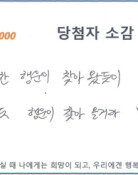Better to suffer than to rule the world
Better to suffer than to rule the world
Posted June. 05, 2019 07:45,
Updated June. 05, 2019 07:45

“Masnavi,” an extensive poem by 13th century Persian poet Jalal al-Din Muhammad Balkhi also known as Rumi, has a wide range of readership than poems by beloved U.S. poets such as Walt Whitman and Robert Lee Frost. The poem has been the all-time bestseller. The popularity of Rumi’s poem comes from the wisdom, love and consolation that it delivers to the readers. Here is a story illustrated in the Book III of Masnavi.
A desperate man cries out Allah all night long being deeply driven into intolerable pain and sorrow. A devil says beside him, “Stop crying. It is no use of shouting in agony for so long. No one will answer to salvage your life up from the skies.” Being discouraged, he lowers his head, thinking the devil got it right.
Then, an angel appears with a message of Allah in her hands. She says that Allah has already listened and responded to his prayer. Here is a thing. The moment the man asks for help from Allah in desperation, Allah already comes into his mind. His painful yelling reaches Allah. The prayer per se is a response. Shouting out Allah is no different from getting an answer. The message says that Allah responds to us as he is not far away from humans and he never leaves us no matter how sorrowful or hurtful our life gets. It is a message that there is no reason to be left in despair because god is always here and now to console us.
In that sense, Rumi once said that it is better to suffer from pain than to rule the world. He believed that humans in agony have the privilege to call out god, which rulers cannot afford.
His words may sound vague and ironical but they give us some consolation. As a poet and philosopher, Rumi attempted to help us find the light of cure and comfort ironically from the pain itself that brings god to us. That is why his poem resonates with the hearts of today’s people.
Headline News
- Israel prepares for retaliation against Iran
- Samsung reclaims top spot, surpassing Apple in smartphone market
- 77% of Koreans in 20s and 30s are 'Kangaroo Tribe' due to job crisis
- KBO referees embroiled in controversy over ABS decision concealment
- Inflation, oil price surge put double shock on global economy







